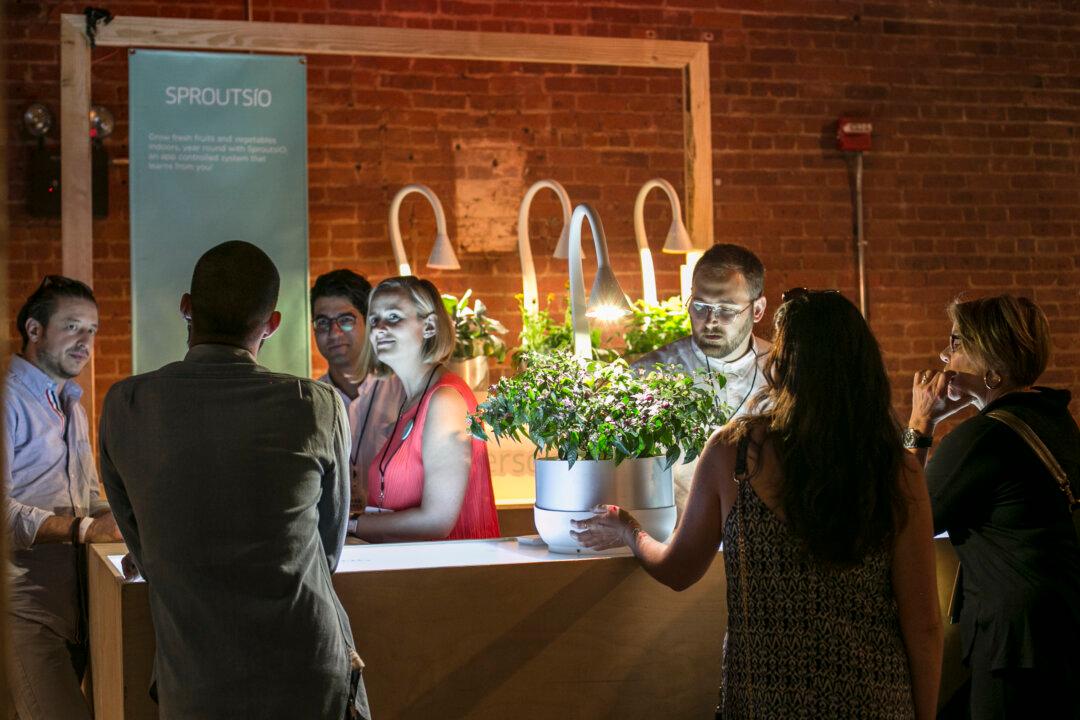The inaugural Food Loves Tech innovation expo over the weekend in New York showcased about 40 companies, many of them startups, but many readers may still be wondering what tech has to do with food?

An attendee tries on virtual reality glasses from Koncept VR at the first inaugural Food Loves Tech innovation expo in New York on June 11, 2016. Samira Bouaou/Epoch Times






